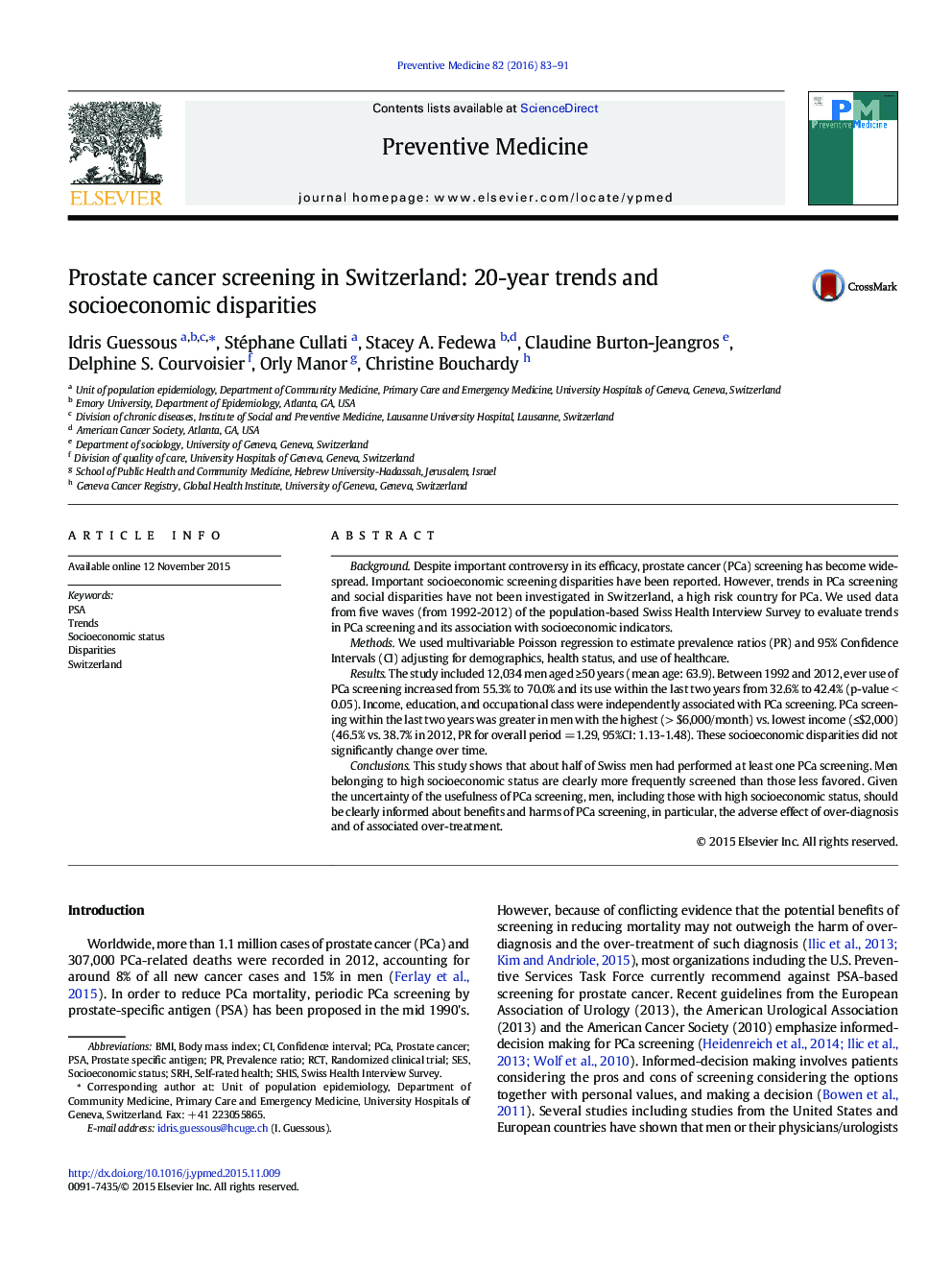| Article ID | Journal | Published Year | Pages | File Type |
|---|---|---|---|---|
| 6046325 | Preventive Medicine | 2016 | 9 Pages |
â¢Trends in prostate cancer (PCa) screening and social disparities have not been investigated in Switzerlandâ¢We used data (12,034 men aged â¥Â 50 years) from 5 waves (1992-2012) of a Swiss population-based surveyâ¢We found increasing trends with about half of Swiss men having performed at least one PCa screeningâ¢Men belonging to high socioeconomic status are clearly more frequently screened than those less favoredâ¢Given the uncertainty associated with PCa screening, men should be informed about benefits and harms of PCa screening
BackgroundDespite important controversy in its efficacy, prostate cancer (PCa) screening has become widespread. Important socioeconomic screening disparities have been reported. However, trends in PCa screening and social disparities have not been investigated in Switzerland, a high risk country for PCa. We used data from five waves (from 1992-2012) of the population-based Swiss Health Interview Survey to evaluate trends in PCa screening and its association with socioeconomic indicators.MethodsWe used multivariable Poisson regression to estimate prevalence ratios (PR) and 95% Confidence Intervals (CI) adjusting for demographics, health status, and use of healthcare.ResultsThe study included 12,034 men aged â¥50 years (mean age: 63.9). Between 1992 and 2012, ever use of PCa screening increased from 55.3% to 70.0% and its use within the last two years from 32.6% to 42.4% (p-value < 0.05). Income, education, and occupational class were independently associated with PCa screening. PCa screening within the last two years was greater in men with the highest (> $6,000/month) vs. lowest income (â¤$2,000) (46.5% vs. 38.7% in 2012, PR for overall period =1.29, 95%CI: 1.13-1.48). These socioeconomic disparities did not significantly change over time.ConclusionsThis study shows that about half of Swiss men had performed at least one PCa screening. Men belonging to high socioeconomic status are clearly more frequently screened than those less favored. Given the uncertainty of the usefulness of PCa screening, men, including those with high socioeconomic status, should be clearly informed about benefits and harms of PCa screening, in particular, the adverse effect of over-diagnosis and of associated over-treatment.
